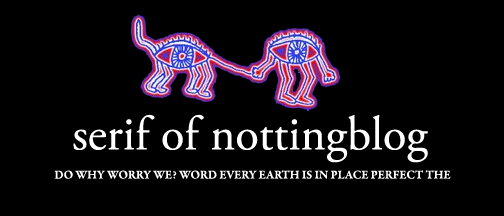David Bowie, Dvorak, The Kansas City Seven and Me.
 |
| :Lester Young |
With the news of David Bowie's death, I've been reflecting on what he meant to many people. There have been some beautiful tributes, many of which reflect on how he was a model and mentor for peoples' non-normative identity, indeed, even opening up the possibility that that was even possible. The power to discover, explore, and be one's self. Very powerful. From Ziggy Stardust to Rebel Rebel he was a brilliant articulator and enactor of alterity.
I wasn't a fan, really rarely being engaged with pop or rock music, particularly as a teen. I think I once bought a Pretenders album and there were those very dated Rick Wakeman albums based on Journey to the Centre of the Earth and King Arthur, but really my interests and inspirations were elsewhere. This is not to disparage or look down on anyone's tastes, but to acknowledge that certain musical languages connect.
I was wondering, in trying to understand how people connected with Bowie, if I had some other analogous models or musical languages that showed me how the world was bigger than my own personal experience or circumstance, that showed me that I could forge an identity that was outside my immediate experience or the experience of my immediate milieu.
I played recorder and cello avidly until I was about 14. I deeply connected with cello music -- I remember requesting Casals playing the Bach solo cello suites for a birthday. Both cello and recorder were powerful voices through both space and time for me. Through both playing and listening. When I was 8 or 9 my very favourite recording was Dvorak's Cello Concerto. I remember strong tactile, or maybe more accurately, the synaesthetic feelings evoked by the cassette. The olive yellow colour, the little image of a weaving of thick yarn tapestry on the little white cassette cover, the metal blue of the label. The distant world of longing in the music. The sombre, intense and thoughtful clarinet, the larger heart of the cello in its role as deeply feeling protagonist. These were big emotions which I discovered in myself through listening. This was what it was to understand one's self, to have a "self" which could conceive (and feel) emotional places outside of the everyday, but yet emotional places which affected how one saw one's daily life. The sun came in through the window. It was filtered through my experience of the timbre of the cello. Walking in the woods had the tone of a recorder. The timbre of the trees, yes, but a vision of what Medieval, Renaissance, and Baroque music knew, how they felt. Many things were in the dorian mode. I had dorian feelings. Or phrygian emotions.
I played lots of early music on recorder and then discovered Irish music (one reason for my interest was that it connected me with Ireland, where I had lived until I was 9.) . I had the Chieftain's Bonaparte's Retreat and a great Boys of the Lough LP. There were bittersweet moments of melancholy. Tunes with sounds peat-infused. Ancient. And alternative to suburban Ottawa.
And then I began saxophone in Grade 7. From then on, I listened to every recording of every saxophonist that I could. I read biographies of Coltrane and Parker. I devoured the liner notes and scrutinized the images, design, and faces on the covers. What was it like to be from Kansas City? To be so moved as to write and then record "Alabama" in a club after the murder of schoolgirls by southern racists? What was it like to seek through music, to reinvent oneself? To search for a voice, a language, a way toward a larger narrative? To feel compelled to create and to explore new ways of creating? If you were Sidney Bechet, what did that vibrato say about your conception of life? There was that Gerry Mulligan duet with Dave Brubeck, "Sermon on the Mount" where I could feel my own teenage soul in the sound of his baritone saxophone, creeping, hollow, plaintive, earnest, arboreal, prayerful.
"Lester Young and the Kansas City Seven" was the first LP that I bought. It was a sound from a time, a climate, a audioscape that was far from where I was yet I felt it led me out of my green shag carpeted bedroom, down the hot streets of a Kansas City night and into the perfect choreography of its music.
I also remember buying Moe Koffman's "Four Seasons." I remember going in with a handful of Bar Mitzvah-money silver dollars to Sam the Record Man in Bayshore Shopping Centre in Ottawa to buy it. The inside of Moe Koffman's double album had a photo of a bulletin board, ostensibly Moe's own. There were postcards, to do lists ("buy bread and wine"), notes about recording, etc. This might be the kind of life someone who made the kind of music Koffman did could live. I could live it too. Maybe I was supposed to, one day, when I was an adult. When I wasn't being John Coltrane or the guy with the Dvorak feelings. I could have a life (and a life of identity and feelings) that might be different than what might be the default expectations of one like me. This was my Ziggy Stardust, my Thin White Duke, perhaps not as profound an alterity, a non-normativity, but one that allows me to understand how he was important to many.

Comments